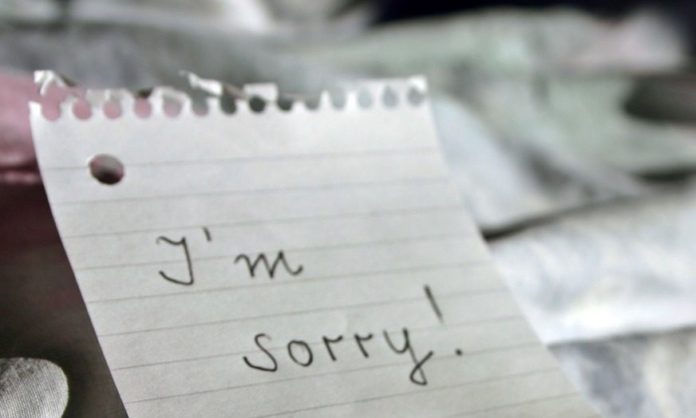
by Nancy Bergeron, Registered Psychologist
I’m not sure about you, but being the quintessential Canadian, I have a tendency to say sorry at a high frequency. This frequent sorry is actually more like an ‘excuse me/pardon me.’ I wanted to share what a true and meaningful apology looks like.
Too often we are reluctant to admit when we were wrong and may have caused hurt to another. It’s scary to make ourselves vulnerable, to face the people we’ve hurt. To have humility and be fully accountable for our words and actions. To accept the consequences of our mistakes. It can be uncomfortable and embarrassing. It’s hard to face the truth, particularly when the truth is that we really messed up outright or inadvertently.
Take ownership of the wrong and be specific in stating how or in what way we wronged the person we are apologizing to.
A clear “I am sorry” statement. When we apologize, we are acknowledging to ourselves and to the other person that we know we are not perfect. The more deeply we embrace our imperfections, the happier and healthier we will be. So, apologizing helps the important people in our lives, our relationships, and ourselves.
An expression of regret. Acknowledge the emotional and physical consequences that the person has suffered as a result of what we’ve done. Once again, it’s about being specific. How did we make this person feel? In what ways was their life changed because of our actions? This allows for a show of empathy and validation of the other’s feelings.
A great apology requires an action or what is referred to as an amends. This will show the person how serious we are about repairing the damage we have created and that we are making sincere efforts to not repeat the same mistakes or behaviours. It is one of the most effective and satisfying forms of justice, and it will help the person heal.
A request for forgiveness. This allows the person we have wronged to feel empowered and shifts the imbalance to show we care that the relationship is mended. This may be delayed or not come at all. This is out of our control.
A heartfelt apology can only do so much. Know that our healing is not contingent upon whether the other person is ready to hear or accept our apology. If we are able to offer an apology in humility and have taken corrective action, then we have reached the outer edge of what we can control.
Never add an excuse to your apology. I am sorry but…I’m sorry you’re angry…if you would only… These are not apologies, they are excuses for our behavior and shift blame.










